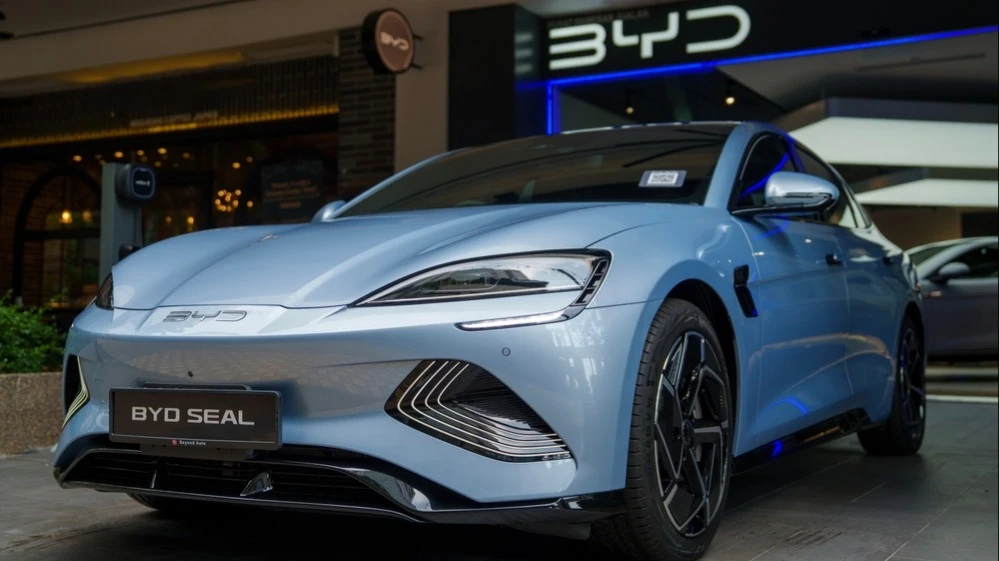Shares of Chinese electric car makers are rising again. Is it worth buying them?
Payments to suppliers have calmed the market, but price wars and falling margins could reverse the effect

Shares in China's electric car makers rose after confirming commitments to pay suppliers, easing fears of liquidity shortages. However, the industry remains under pressure from a price war, subsidy cuts and fierce competition, making growth increasingly dependent on companies' profitability and overseas expansion.
Details
Shares of Chinese electric car makers rose on Sept. 15 after several major companies reaffirmed their commitments to suppliers. This helped alleviate concerns about the lack of liquidity in the sector, according to Investing.com.
- Shares of BYD, China's largest automaker, added more than 4% in Hong Kong trading after news that the company reaffirmed its commitment to a 60-day payment cycle to suppliers. In recent months, it has been BYD that has been the focus of investor attention, with its capitalization down about 23% since Ma after hitting a record high.
- Li Auto's quotes rose 5% on similar reports of compliance with a 60-day supplier settlement cycle that was agreed by Chinese electric car makers earlier this year under pressure from authorities.
- Other stocks in the sector also posted gains, with Zhejiang Leapmotor Technology up 3.7%, NIO up 5.9%, Xpeng up 2.4% and Geely Automobile up 0.7%.
Why it's important
The reaffirmation of BYD's commitment helped ease concerns about shrinking cash reserves in the industry, especially amid an ongoing price war for share in the world's largest electric vehicle market, notes Investing.com.
At the beginning of the year, BYD and its competitors went for steep price cuts to outperform rivals. However, this strategy has led to falling margins across the sector. Earlier, Chinese media reported that manufacturers are experiencing liquidity difficulties and may face problems in paying suppliers.
In June, Chinese authorities intervened and got companies to commit to more "healthy" competition and to switch to a 60-day settlement cycle with partners.
Pros and cons of investing in Chinese electric car stocks
Investing in this sector comes with notable risks that are associated with the regulatory environment, high competition and market volatility, Moomoo notes.
Subsidy cuts and policy changes can directly impact companies' profitability. Geopolitical tensions, including duties and trade wars, can limit exports and negatively impact financial results. The market is over-competitive, with over a hundred brands operating in China, intensifying price wars and shrinking margins. The technology race requires constant investment in research and development, increasing pressure on budgets.
Additional risks are posed by supply chain disruptions and volatility in the price of key materials, primarily lithium. Many producers, including NIO and Xpeng, remain loss-making and dependent on capital markets, Moomoo adds.
At the same time, investors also have serious advantages. China retains its status as the world's largest electric vehicle market and has high potential for further growth. The government supports the industry with subsidies, tax incentives and the development of charging infrastructure, which accelerates the spread of EVs.
Chinese companies are actively pursuing technological innovations - from battery solutions and energy efficiency to autonomous driving systems - and thus strengthening their position in the global market.
Manufacturers are expanding beyond the domestic market into Europe, Latin America and Asia, allowing them to diversify their revenue sources. In addition, the sector is ESG compliant and offers investors the opportunity to support green technologies, making these assets more attractive in the long term, Moomoo summarizes.
Context
China's electric vehicle market accounts for more than half of global production and sales, notes Investing.com.
Demand growth is driven by strong consumer activity, generous government subsidies and rapid development of charging infrastructure. At the same time, fierce competition, the gradual removal of subsidies and price pressures mean that future industry growth will depend less on government support and more on the ability of companies to remain profitable.
Local automakers have begun aggressively cutting prices, following the lead of Tesla, which has employed a similar strategy over the past three years.
Major players such as BYD are looking to strengthen their positions in overseas markets, including Europe and India, to offset growing challenges in the domestic market, summarizes Investing.com.
This article was AI-translated and verified by a human editor
